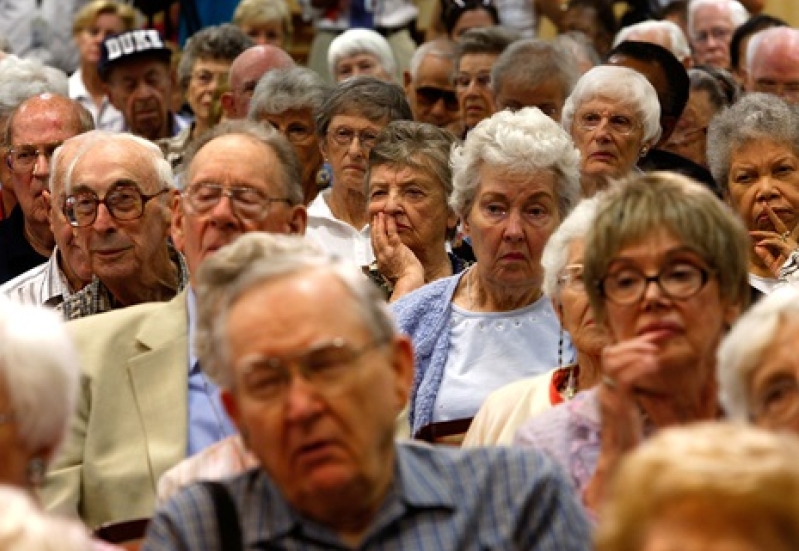
The average American lives to 78.7 years. Yet more than one in three Americans want to live to be at least 120 – and sometimes older -- according to a study from the Pew Research Center’s Religion and Public Life Project and The Huffington Post.
The survey -- which asked questions about how long Americans want to live, the ethics of extending their lives through medical technology and the effect they believe such changes in life span would have on society -- broke down the results by age, race, ethnicity, gender, religion and political affiliation. It also compared views on life extension to views on the morality of the death penalty and abortion, according to The Post.
Brandy Bauer, a communications manager with the National Council on Aging based in Washington, D.C., said living to age 100 or 120 is only as good as one’s health, economic security and community support. People only want to live to an old age “if they can remain healthy and independent,” she said.
“From our own recent survey with UnitedHealthcare and USA Today, we know that while people are generally quite optimistic about aging, less than half of seniors -- 49 percent -- believe their community is doing enough to prepare for the future needs of the growing senior population,” Bauer said. “Any discussion of extended life span needs to also look at community preparedness.”
Bauer reminds us that 92 percent of older adults have at least one chronic health condition -- and 77 percent have two or more.
“We know that 23 million older Americans struggle financially. How will we be prepared to ensure their financial security for decades to come,” Bauer said. “Our United States of Aging survey found 53 percent of seniors are concerned about whether they’ve got enough savings to last the rest of their lives.”
By 2050, according to U.S. Census Bureau projections, one-in-five Americans will be 65 or older, and at least 400,000 will be 100 or older. Some futurists think even more radical changes are coming, including medical treatments that could slow, stop or reverse the aging process and allow humans to remain healthy and productive to the age of 120 or more. The possibility that extraordinary life spans could become ordinary life spans no longer seems far-fetched, according to the study.
Perhaps most intriguing: There is an association between race and ethnicity and views about radical life extension, with blacks and Hispanics more inclined than (non-Hispanic) whites to favor radical life extension for themselves as well as for society as a whole. There may be many overlapping reasons for these differences, the research found.
Blacks and Hispanics tend to hold distinctive views on a number of questions that are correlated with views about radical life extension, such as having higher expectations that such scientific breakthroughs will come to pass by the year 2050 and being more inclined to see the growth of the elderly population as good for society, according to the research.






